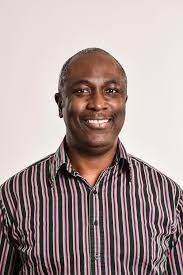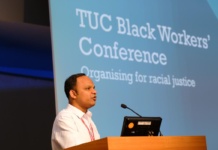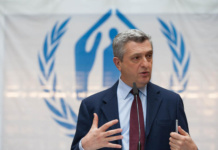
At an event organized by the SQUARE Project [led by the University of Manchester], the Nigerian Institution of Environmental Engineers [a division of the Nigerian Society of Engineers] and the Nigeria Society of Engineers, Manchester UK Branch on 24th August, 2023, the economic costs of illness and premature deaths due to ambient air pollution in urban cities like Lagos State was revealed.
This is the second in a series of “Sustainable Path to Air Pollution” events, with the maiden edition held on 26th August 2022 at the National Engineering Centre Annex, Victoria Island, Lagos. Today’s event was held online, to allow the participation of a wide audience from different parts of the globe, with participants from several states in Nigeria, the UK and Australia. 54 participants engaged with the event, from national institutes, academic institutions to interested individuals.
Engr. Sesan Odukoya, the National Chairman of the Nigeria Institution of Environmental Engineers (a division of the Nigerian Society of Engineers), delivered the welcome address and opening remarks. He emphasized the dangers air pollutants such as particulate matter [PM2.5] pose to human health and the ecosystem; the economic costs of illness and premature deaths due to ambient air pollution in Lagos State are estimated to add up to $2.1 billion in 2018, representing about 2.1% of the total Lagos State GDP. The current World Health Organization guidelines state that annual average concentrations of PM2.5 should not exceed 5 mg/m32, yet [parts] of Lagos State have recorded PM2.5 levels of 68 mg/m3. Therefore, he said, he understood and acknowledged the SQUARE team’s message for an urgent need for accurate, reliable, and accessible methods to detect and monitor air pollutants. He concluded by commending the SQUARE team’s progress thus far in developing low-cost air quality monitoring systems to empower communities, and promote informed policy decision-making with regards to air pollution. Therefore, he stressed the need for collaboration, innovation, and commitment among all the relevant private organizations, government parastatals, Non-Governmental Organizations, and others because “the air we breathe knows no boundaries,” it is our shared responsibility to protect it for ourselves and future generations, he said.
Dr Obuks Ejohwomu, the SQUARE lead, presented a brief background to the project. The project was founded 3 years ago by Dr Obuks Ejohwomu and Dr Nwabueze Emekwuru, with the first tranche of funding secured from the University of Manchester’s GCRF-QR grant. Since this time, air quality monitors have been secured and used to acquire air quality data in Lagos, the first “Sustainable Path to Air Pollution” event was held, a Special Issue in the Frontiers International Journal was secured and the results of the project published in 3 journal papers. Also, he said, SQUARE has mentored scientists and students in Nigerian institutions on the development of air quality monitors and worked with esteemed institutions such as the Nigerian Institution of Environmental Engineers, the Nigerian Society of Engineers, the Nigerian Heart Foundation, and the Centre for Atmospheric Research at the National Space Research and Development Agency in promoting the project’s quest for use locally available resources to develop sustainable air quality monitors. Dr Ejohwomu concluded by stating that the SQUARE project will continue with the objectives and will expand their work to more parts of the country.
The event was chaired by the President of the Nigeria Society of Engineers [NSE], Engr Gidari-Wudil Tasiu Saad FNSE, in absentia. Other dignitaries present at the occasion included the past president of the NSE, Engr Ademola Olorunfemi, and the chairman of NSE Manchester UK branch, Engr Patrick Obidoyin. The presence of academics, interested groups and environmentalists from all over England, Australia, and Nigeria was notable.
All the competing groups displayed their procedures for manufacturing their locally designed air quality monitors, with demonstrations of their uses in acquiring air pollution data, together with the data retrieved from the monitors and the calibration processes involved. The event participants engaged with the participants enthusiastically with the competing groups so as to better understand the operations of these monitors. There was a general satisfaction with the responses from the competing groups regarding their devices. The participants recognized the potential benefits of the devices and are looking forward to the deployment of these instruments for the country’s benefit.
Winners of the air-quality monitors competition
[The award will be presented to the best three teams at the NSE conference on November 27]
First Prize: Team RSU from the Rivers State University, Post Harcourt. (To receive £250)
Second Prize: Team ABET: ARCSSTE-E Breath Easy from the African Regional Centre for Space Science and Technology Education in English, Ile-Ife. (To receive £150)
Third Prize: – Team LASLM from the University of Calabar, Calabar. (£100)
Team Federal University Gashua, Gashua, another finalist, were well appreciated for their zeal and enthusiasm.
Special mention
Mr Oluwapelumi Abiodun – Post Graduate student at the University of Manchester, UK, who helped with all the administrative work for the SQUARE project.










